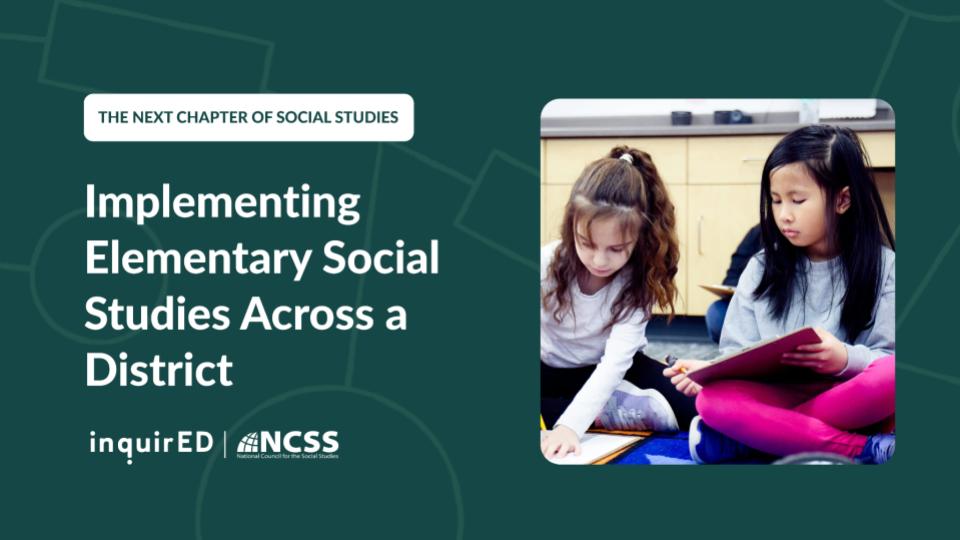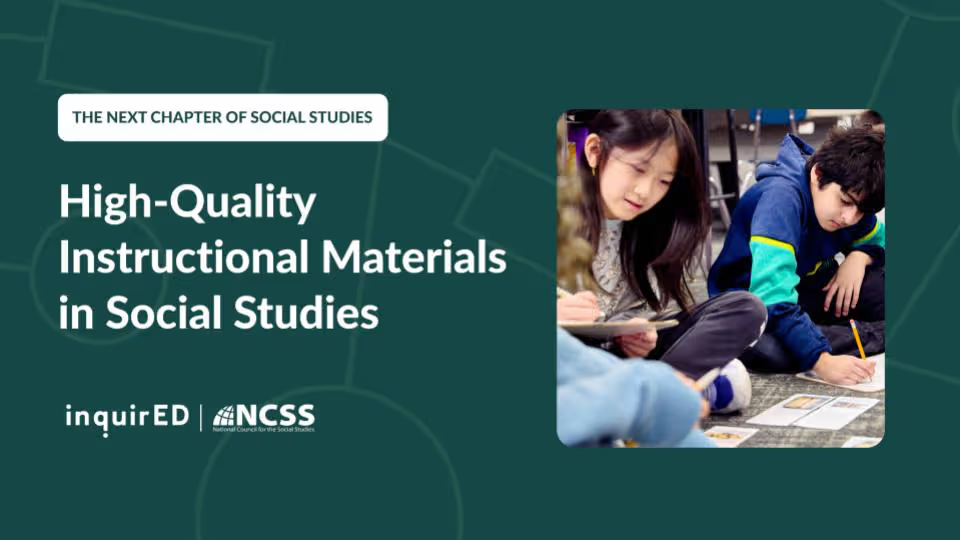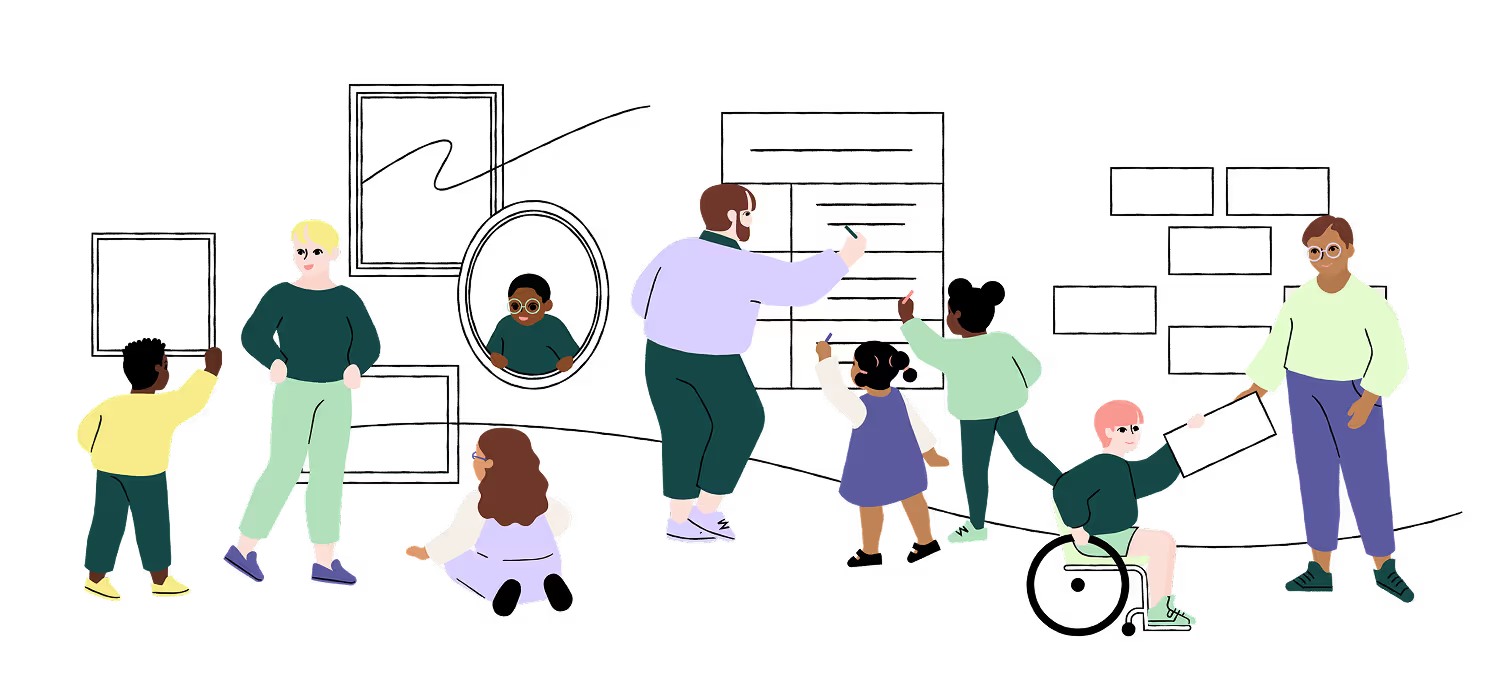The Social Studies ELA Connection: Making the Case For Elementary Social Studies

NOTE: There is no recording for this webinar.
The Social Studies ELA Connection: Making the Case For Elementary Social Studies

There's no disagreement about the severity of the problem with english language arts (ELA) outcomes in American elementary schools. Open the newspaper and read about the latest alarming round of test scores, and you'll see our system's failures writ large across the media.
Key Takeaways
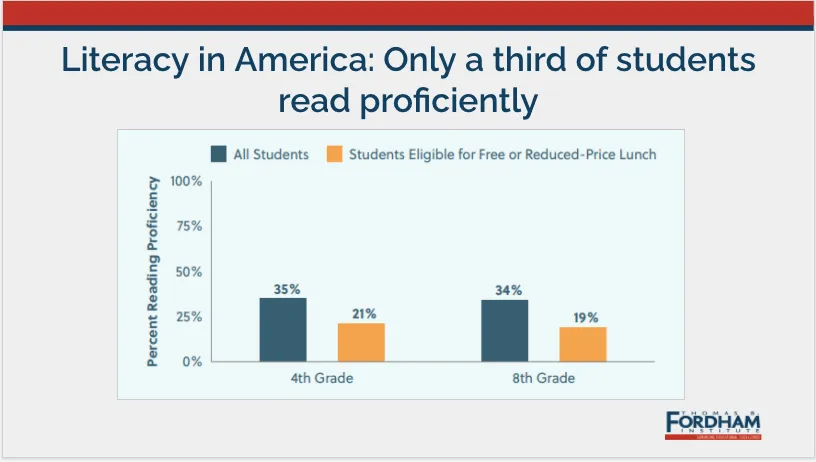
Agreement on the solution, however, remains elusive — so much so that it prompted journalist Natalie Wexler, in her book The Knowledge Gap, to label the fierce debate over reading instruction as "the reading wars." But what do these "reading wars" have to do with social studies? In Part II of The Case For Elementary Social Studies, we'll interview Ms. Wexler about how integrated ELA and elementary social studies curriculum contributes to knowledge building, a key factor in improving elementary students' reading comprehension.
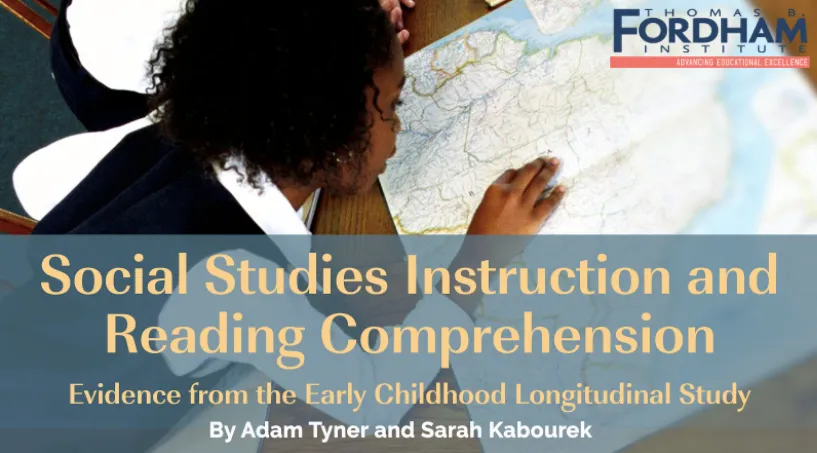
Today's webinar guest, Adam Tyner, Associate Director of Research at the Fordham Institute, recently co-authored a study with Sarah Kabourek (NORC at the University of Chicago) that confirms the importance of elementary social studies curriculum in developing students' reading skills.
Their study "Social Studies Instruction and Reading Comprehension: Evidence from the Early Childhood Longitudinal Study (ECLS-K)" examined data from the ECLS-K regarding instructional time in elementary schools across subject areas, and how this correlated to reading scores on standardized tests.
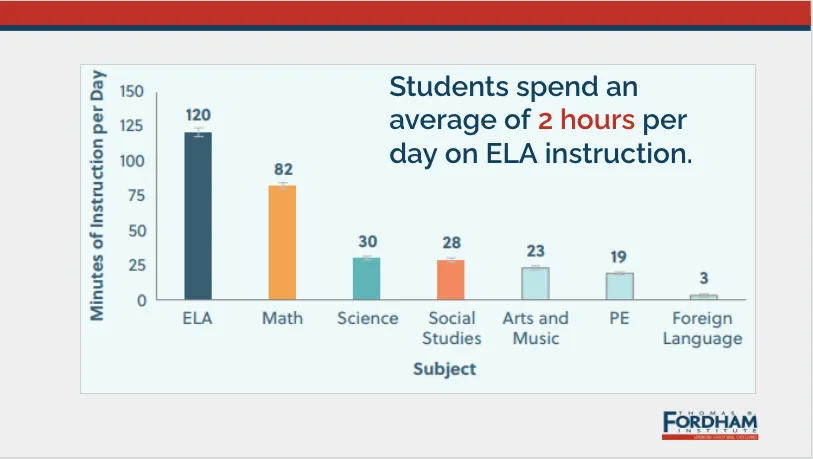
Among other findings from the study, data indicates that elementary school students in the U.S. spend much more time on ELA than on any other subject. Most of this instruction, according to Tyner, is spent on teaching discrete skills like "finding the main idea" of a selected passage. Tyner also hypothesizes that there may be a phenomenon of "diminishing returns" occurring in ELA instruction, arguing that after a certain number of instructional hours, there is no more benefit to be gained from additional ELA time.
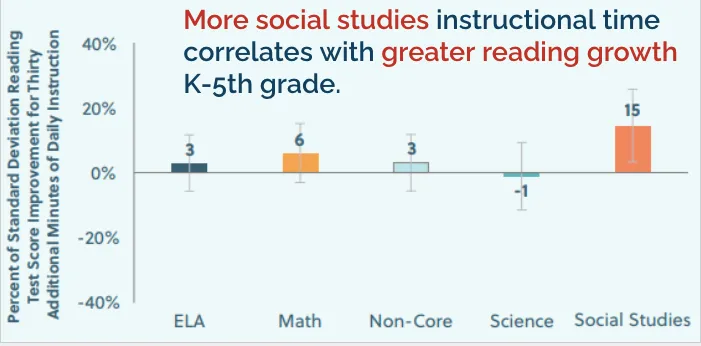
As Tyner and Kabourek further analyzed data, they found that increased instructional time in social studies—but not in ELA—is associated with improved reading ability. Additionally, the students who benefitted the most from additional social studies time were girls and those from lower-income and/or non-English-speaking homes.
During the webinar, Adam talked about these findings, and how they might influence policymakers and school leaders. We were also joined by the National Council for the Social Studies President, Stefanie Wager, who described how important these findings can be for the social studies community. "It completely confirms what social studies teachers have been saying for years," Wager says, "we need to fundamentally change the way we are thinking about the teaching of reading and the teaching of social studies."
Resources
Keep reading
See more of this series
Start your journey
Inquiry Journeys, inquirED's K-5 social studies curriculum, engages students in inquiry-based learning, strengthens literacy skills, and supports teachers every step of the way.
inquirED supports teachers with high-quality instructional materials that make joyful, rigorous, and transferable learning possible for every student. Inkwell, our integrated core ELA and social studies elementary curriculum, brings ELA and social studies together into one coherent instructional block that builds deeper knowledge, comprehension, and literacy skills. Inquiry Journeys, our K–5 social studies curriculum, is used across the country to help students develop the deep content knowledge and inquiry skills essential for a thriving democracy,








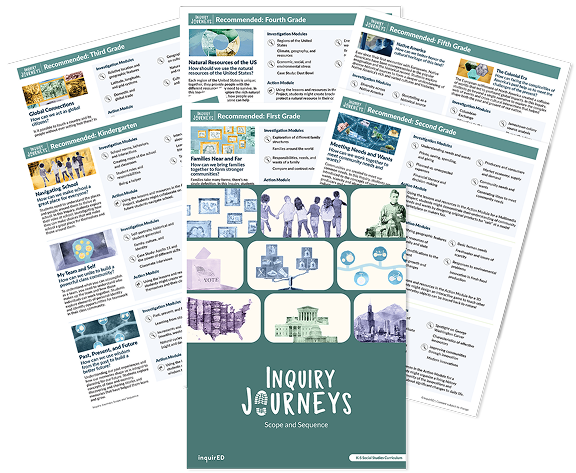
%20Medium.jpeg)
